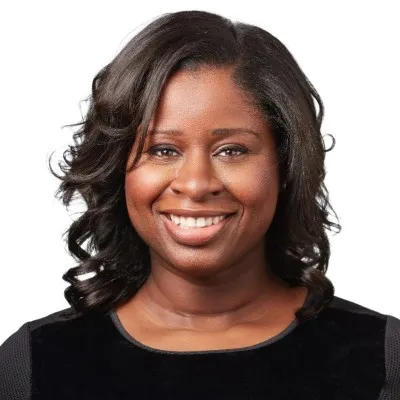How to Scale Culture Company-Wide and Beyond


No matter the size of the company, it’s important to cultivate leaders at the same pace that the company is scaling, and one way to do that is to curate and codify what is consistent across a company culture and promote those who live the values of that culture.
We recently had Pamela Mattsson, SVP People and Organizational Development at Outreach on the BragWorthy Culture podcast to share her thoughts on scaling culture both in and out of a pandemic.
Part of what informs Pamela’s approach to bringing back “human doing, not just human being” to organizations was her time at Amazon, during which the company grew from 150,000 team members to over 1.3M. Pamela characterizes the company not as a monolith, but really as an umbrella of 10,000 startups. It was her experience trying to tie these many smaller organizations into one common set of values that led in part to her role now at Outreach.
Outreach is the first and only Sales Execution platform. It helps revenue teams:
- Bring intelligence to workflows
- Unlock full visibility across the entire revenue cycle
- Commit forecasts with confidence
Outreach uses the power of AI to integrate sales engagement, conversation intelligence, and revenue intelligence into one platform.
Having Your Team Members’ Backs
One of the values that Outreach stands behind is the idea of “having your back.” This doesn’t just cover when something goes wrong; it’s also about celebrating successes. When failures come, Pamela and her team want to own those together.
While having someone’s back implies a one-way relationship, for this value to really work, honesty and transparency have to come from team members back to leadership as well, and that can be empowered by the company communicating as much as possible. This ensures constructive feedback that is not only frankly given but gratefully received.
This is particularly true during a pandemic or, as has more recently been discussed, a recession. Pamela wants to make sure that all team members are listening and seeing and thinking about problems together. This allows everyone to also take more risks, because the competition is seen as an external entity, not something among the team: concerns, issues, weaknesses, and risks can be raised without fear of reprisal.
Pandemic Challenges
While there was a sudden shift to remote work in early 2020, over time people began to realize that there wasn’t a corresponding grasp of the new skill sets that needed to be developed. It wasn’t just a question of learning new technical skills (“you’re on mute!”) but of understanding that how you treat and manage team members in online video chat is entirely different from how you do the same in person.
There also needed to be a greater understanding of the wide variety of remote work situations. While some people might be living alone and have a pretty straightforward remote work setup, others might be in a closet and shushing a child before starting a meeting. Greater awareness of mental health and telltale signs of strain can help all team members to develop and deploy more empathy.
With the move to remote, there was less context to making hiring decisions, as the physical presence and body language of an in-person meeting were no longer available. Pamela saw this as an opportunity to double down on recognizing unconscious bias, which could be a bigger problem in a remote hiring situation.
On the other hand, as conditions began to change and coming into the office was more viable, how could team members who did want to come into the office be accommodated, while still maintaining a link with those who wanted to stay remote? These challenges could only be met by everyone’s transparency and openness and willingness to have each other’s back, realizing they were all in it together.
Living Company Values
Pamela realizes that some people are going to move on, either forward in their career with other companies or possibly to an entirely new career and direction. Her goal is to send people off well so that they can help lift up other companies as well, and in a way, spread Outreach’s values even wider than within the orbit of its team members, vendors, and customers.
But Pamela wants people to stay, and part of that retention is promoting those who are most aligned with company values, thus encouraging other team members to see this as a path for promotion as well.
One way to spread those values efficiently is to make sure they are embedded in processes all over the place. This doesn’t just mean having something engraved in a lobby; values have to be expressed in the way KPIs are worded, customers are managed, or feedback is given.

Employee Benefits
One of the expressions of company values is the set of benefits that are offered. But sometimes, team members have to be encouraged to use those benefits. Leadership matters here too! Pamela shared one specific example of the CEO who used a night doula on paternity leave and made sure to post pictures and share them with other team members.
The principle here was that sleep matters and that well-rested team members are happier and perform better. That means using every resource available, like a doula to assist with overnight childcare duties.
Sometimes people need a friendly push to take benefits they are entitled to, and leaders need to be aware of that and empower others by sharing whenever they use benefits themselves.
Check Out the Full Episode
You can learn more from our discussion with Pamela Mattsson by listening to the podcast on Apple or Spotify. She also talks about how her team has doubled down on awareness of unconscious bias to perform better when hiring remotely. Pamela is big on values and culture being expressed in processes and procedures as well as in interviews and mission statements. That means that those who best reflect the company values and culture should be targeted for promotion.
Looking to build your own BragWorthy Culture? Fringe can help. Fringe is the number one lifestyle benefits marketplace. Give your people the power of choice and save a ton of administrative headaches by consolidating existing vendors and programs into a simple, automated platform. Talk to our team to get started.


